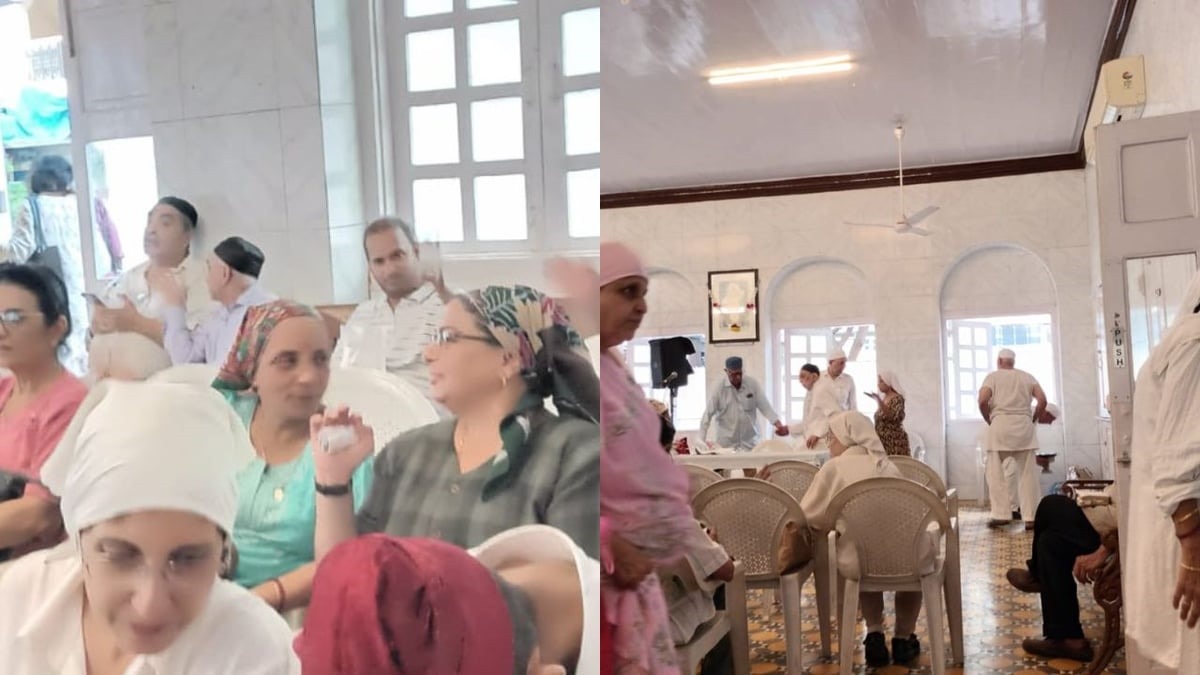Parsi Vegetarian and Temperance Society celebrates movement founded in 1911 to promote vegetarianism and temperance.
Article by Manoj Ramakrishnan | Free Press Journal
Mumbai: In Bahman Month, Parsis Celebrate Vegetarianism | FPJ
It is onerous to think of Parsi cuisine without the fish, eggs and meat. Even dishes where the star ingredient is a vegetable, the egg is an essential component. Think of ‘papeta par eedu’ or egg scrambled on potatoes. Retain the eggs and replace the potatoes with tomato, ladies’ fingers, ridge gourd, raw bananas, and you have variations of Parsi ‘vegetarian’ dishes.
There have been attempts, largely unsuccessful it might seem, to turn the community vegetarian. In 1911, the Masani brothers, from a priestly family, founded the Parsi Vegetarian and Temperance Society. On Wednesday, more than 750 Parsis attended the society’s annual celebrations at Cama Baug, Khetwadi. A talk on vegetarianism and a jashan, or a thanksgiving ceremony, were part of the programme. The evening’s highlight, needless to say, was a vegetarian dinner.
The day was the second in the Zoroastrian month of Bahman, when the faithful are asked to subsist on vegetarian food. The tradition is compared to the Hindu month of Shravan or the Christian season of Lent, which are spent in prayers and abstinence.
Moderation in diet and abstinence from alcohol are the main messages from the society. Mehli Shroff, a member, said that the group was founded in 1911. “The aim was to make all Parsis vegetarian,” said Shroff.
Nariman Mody, a trustee, said that the Masanis created the group after concerns that too many Parsis were addicted to alcohol. “It was embarrassing to find inebriated Parsis sprawled out on footpaths. The community wanted this to be curbed,” said Mody. “We believe that people should take vegetarian food as far as possible and observe temperance in consumption of liquor.”
The menu on Wednesday evening included vegetable dhansak, a version of the flagship dish of Parsi cuisine, mutton dhansak, which is a medley of meat, pureed dal, and rice. There was also a vegetable stew, apart from potatoes, rice, and sweet.
Dr Kurush Dalal, archaeologist and culinary anthropologist, said that Parsi cuisine has a wide range of vegetarian dishes. He blamed restaurants and ‘South Mumbai Parsis’ for popularising the story that the community’s food consists of only meat, fish and eggs. “Parsi restaurants do not want to cater to vegetarians and Parsis in South Mumbai have become carnivorous,” said Dalal.
According to Dalal, eggs are added to leftover vegetables to make them more palatable. “Parsis do eat a lot of vegetables like okra (lady finger), brinjal, and dals like chana and masur. It is just that most meat dishes are cooked with vegetables. Dhansak is rice, dal and vegetables cooked with meat. It is like Italian food where meat is cooked with a lot of vegetables,” said Dalal.
The dietary traditions of Bahman month are related to the ancient wisdom of maintaining balance in nature. Fishing, hunting and poultry is banned to allow nature to heal and restore itself.
According to Dalal, contrary to perceptions, a large number of Parsis eat vegetarian food in the month dedicated to the angel Bahman. “On one day of this, I think that at least 50 % of the community eat vegetarian food.”
Parsi vegetarian dishes
Bhaji dana: A mix of four leaf vegetables: Spinach, fenugreek leaves, amaranth, and dill.
Raviya: Stuffed brinjal in gravy
Lagan nu Stew: Cubed vegetables like potatoes, yam, sweet potatoes, carrot cooked in tomato sauce
Dhansak: Pureed vegetables and dal served with rice
Parsi dahi kadis: Yogurt curry similar to Gujarati kadhi but thicker

